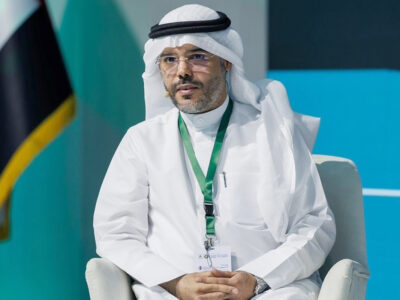Swiss private bank Julius Baer, which focuses on servicing high net worth individuals and independent asset managers, aims to increase assets under management by about 59 percent over the coming two years as the firm expands globally, the bank’s CEO said.
“My personal objective is to be above the bar of CHF300bn (US$322bn) by the end of 2015,” Boris Collardi, who has been chief executive of Julius Baer Group since 2009, said in an interview with Arabian Business. “That puts us in a nice comfortable position with approximately 50 offices around the world by then and that should allow us to finance the growth.”
The Swiss wealth manager increased assets under management 11 percent last year to CHF189bn from 2011 as market performance improved and net inflows increased 5.7 percent. As part of its strategy to boost its presence globally, Julius Baer acquired last year the wealth management units of Merrill Lynch outside the US. The integration of Merrill will potentially increase Julius Baer’s existing financial adviser base by as much as 64 percent.
More than 75 percent of Julius Baer’s net new money comes from emerging markets and the majority within that comes from Asia, followed very closely by the Middle East. Emerging markets and developing economies are projected to grow about 5.6 percent this year, up from 5.3 percent last year, while Europe contracted 0.4 percent last year, and the US economy increased 2.2 percent, according to International Monetary Fund estimates.
Until 2005, less than 15 percent of Julius Baer’s clients were coming from the non-European and non-Swiss markets. The expansion of the bank has seen that portion increase to 37 percent, said Collardi, and with the Merrill integration is set to rise to 50 percent by 2015. That will means one in two of the bank’s client assets will come from Asia, Middle East, Africa, Eastern Europe or Latin America.
Asia, which accounts for 60 percent of the world’s population and about a quarter of billionaires globally, is the fastest growing region for the private banking industry, followed by Latin America, Europe and North America.
“We’re growing very nicely in this part of the world,” Collardi said, adding that the bank was looking at servicing prospective clients in Saudi Arabia and may consider opening an office there in the future.
The number of high net worth individuals in the Middle East increased 2.7 percent in 2011 year-on-year, while they grew about 5.4 percent in Latina America, 3.9 percent in Africa and 1.6 percent in the Asia-Pacific region, according to the World Wealth Report 2012, released by RBC Wealth Management and Capgemini. During 2011, the United States, Japan and Germany accounted for 53.3 percent of global high net worth individual (HNWI) population. The previous year, these three nations represented 53.1 percent of the world’s HNWI population.
As Switzerland comes under pressure over its banking secrecy regime from the US, UK and Germany, which want to crack down on tax evaders, Swiss banks like Julius Baer are looking to expand outside of their home markets.
“This is probably one of the biggest challenges of Switzerland and its financial services industry,” Collardi said when asked about the increasing pressure on Swiss banks.
“We want to go to the future, we want to go to international standards but one cannot ignore that there is a past,” Collardi added.
“This past is there due to a number of events in Europe. It was not a deliberate strategy of Switzerland, it was just a consequence of being a country being in the middle of a region that was in turmoil at some stage. So people sought refuge for their assets in Switzerland over a period of time. This is over. If you talk to any institution today in Switzerland they will tell you that they are not interested in undeclared assets, that they’re taking steps to make sure they do not accept any new undeclared assets, they will tell you that measures have been taken to ask clients to comply with the law,” Collardi said.
“Switzerland has a roadmap for the future… we just have to find a solution to the past and there isn’t one solution right now that works for everybody. The US has stronger influence than some of the other nations. I’m hopeful that in the next two years we will find an agreement with Germany, Italy, with France and once this is done, Europe is done”




